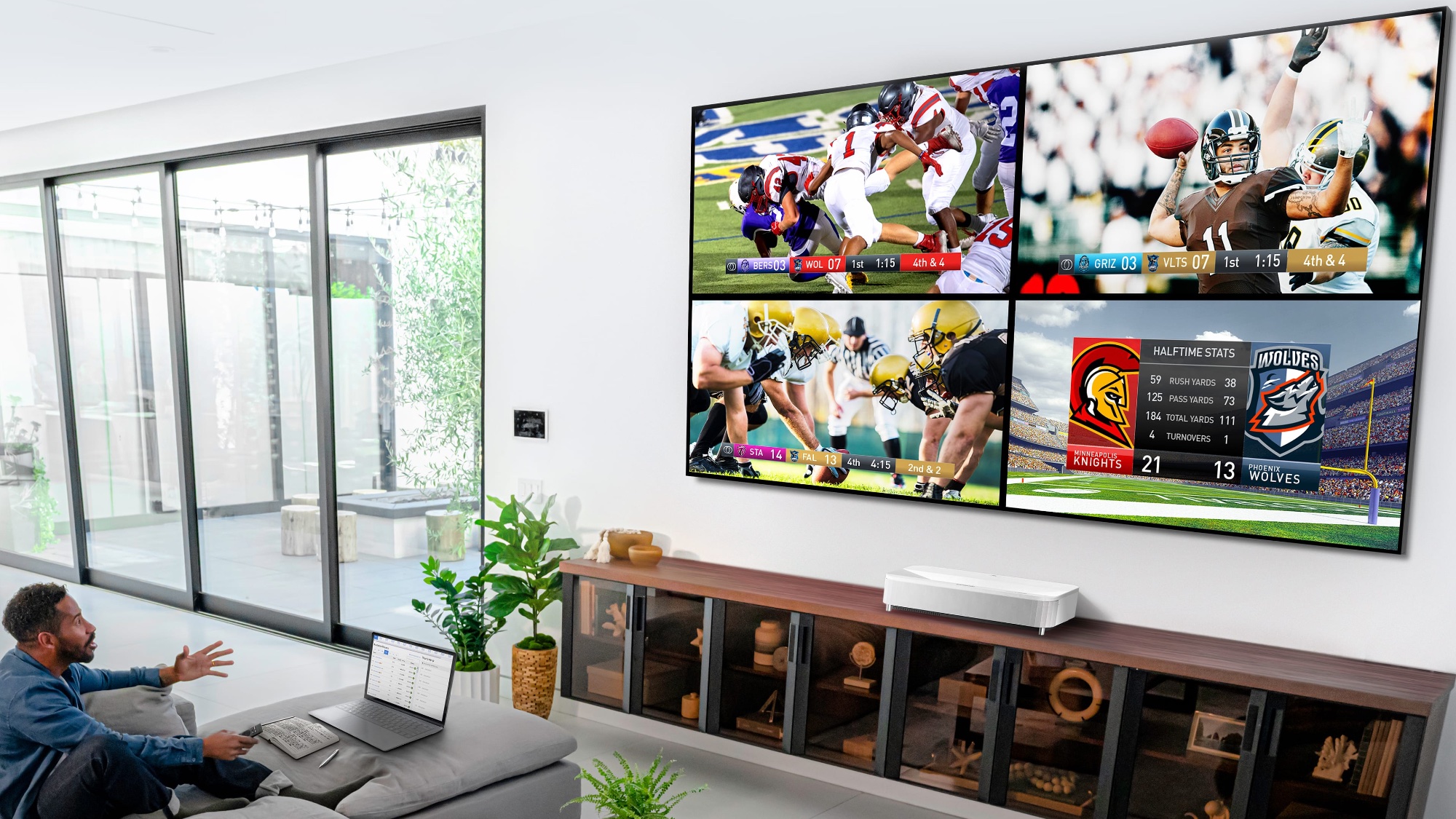
While the question of replacing your 4K TV with a 4K projector can still be a tough one to tackle, it’s quite clear that projectors have several upsides and downsides to them, chief among them being their size and brightness.
Ambient light, however, remains the biggest hurdle as even some of the very best projectors struggle with tackling outside and invasive sunlight — that’s why we go to the movie theaters in pitch black darkness, after all. But, charged with increased lumens, measured via the American National Standards Institute (ANSI), projectors can literally fight back against ambient lighting, with the benchmark for apt daylight projector use being around 3,000 ANSI lumens and up.
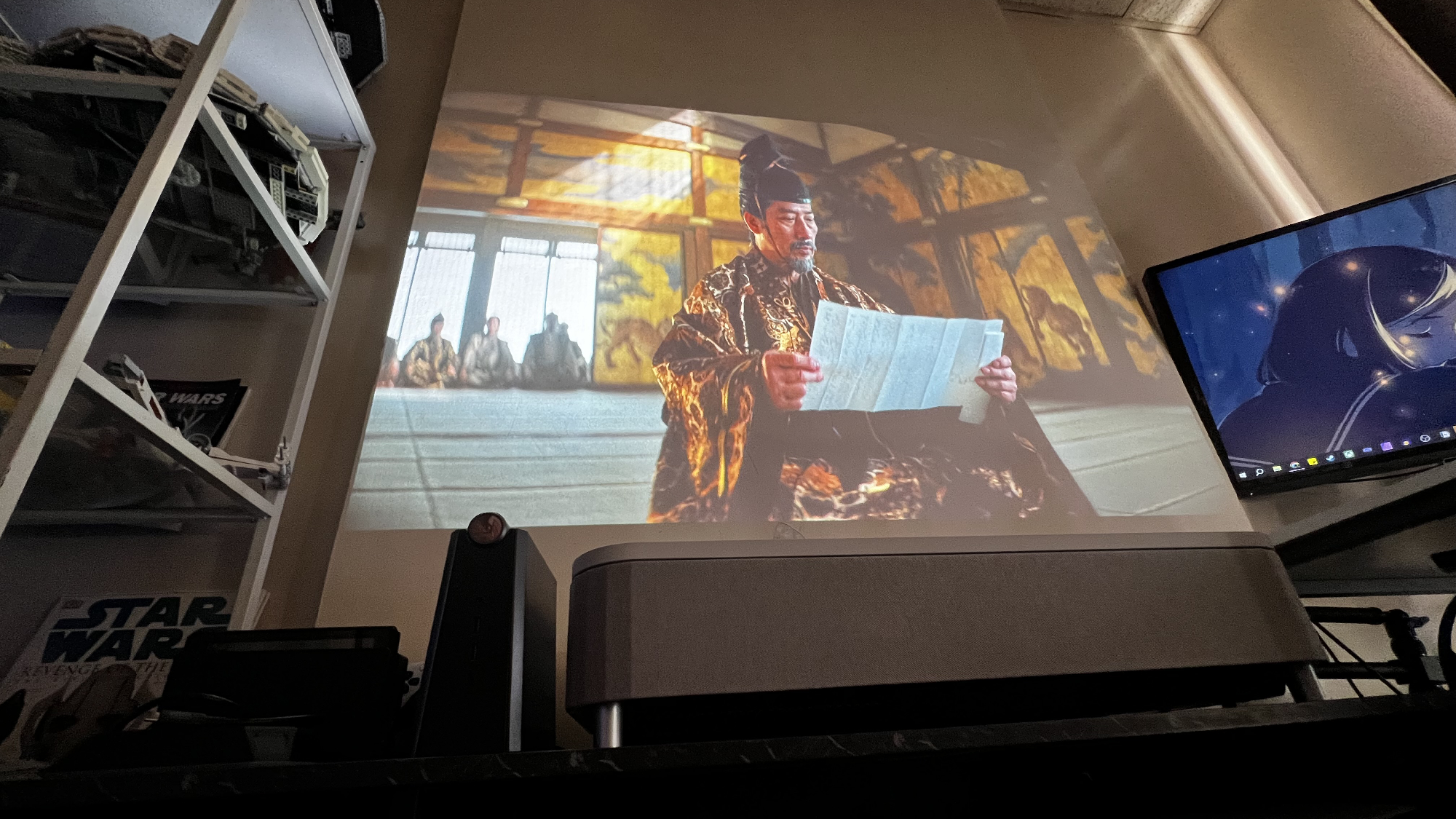
Enter Epson’s EpiqVision Ultra LS800, which measures at 4,000 lumens, one of the highest among UST projectors, marking it an utter beast against daylight — and it shows. Sunlight wasn’t the only obstacle Epson considered when designing its LS800, as the dedicated HDMI port that bypasses its Android 11 OS, allowing for a purported under 20ms of input lag, is a huge boon for gamers.
Although it’s relatively expensive given the $3,500 price tag, the LS800 shouldn’t be overlooked. It’s proven to be a remarkable home cinema upgrade and could be one of the very best UST projectors on the block right now — that is, until we get our hands on Samsung’s Premiere 8K.
Shining brighter than a diamond
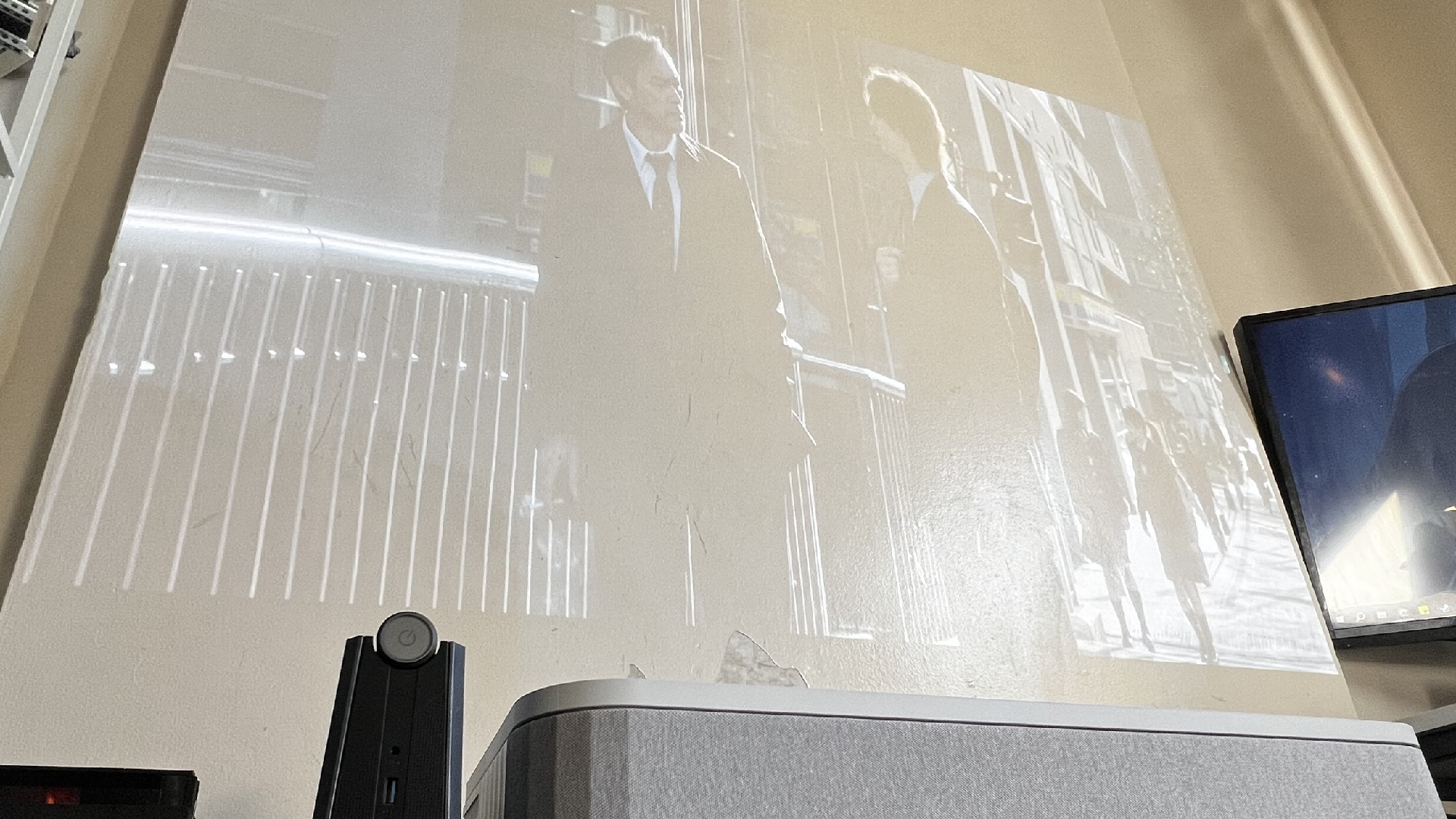
Look, no one is going to want to watch a projector in broad daylight with the blinds open, but Epson's latest can stand up to the test. It’s not going to be a perfect image (as you can see by the lack of contrast in the photo above), but against other projectors in the space, like the Formovie Theater (which uses 2800 ANSI lumens), it produces a clear picture.
Color and contrasts can be a bit off only slightly, but it’s pretty remarkable seeing a projector with such high fidelity even in broad daylight. I used the LS800 in the middle of the day with both the shades open and closed to get a full experience of different ambient lighting effects while watching Hulu’s brand new epic period piece "Shogun" and Max's neon-noir thriller "Tokyo Vice," both of which offer several darker sequences — ambient lighting's worst enemy.
If you want to ramp up the contrast and clarity here, you can get better midday performance out of the LS800 paired with an ALR screen. That's what I recommend, but it's not 100% necessary — especially since it requires room for a 100-inch screen and an additional $2,000 to purchase one.
Epson’s projector even has a dedicated brightness toggle on the remote, making swift changes to the display's brightness super easy and simple. You will have to contend with the noisy fans that can be a bit annoying the higher the brightness goes, but it’s not too much of a problem when content’s playing on the screen, as the sound will be far louder than the fan noise.
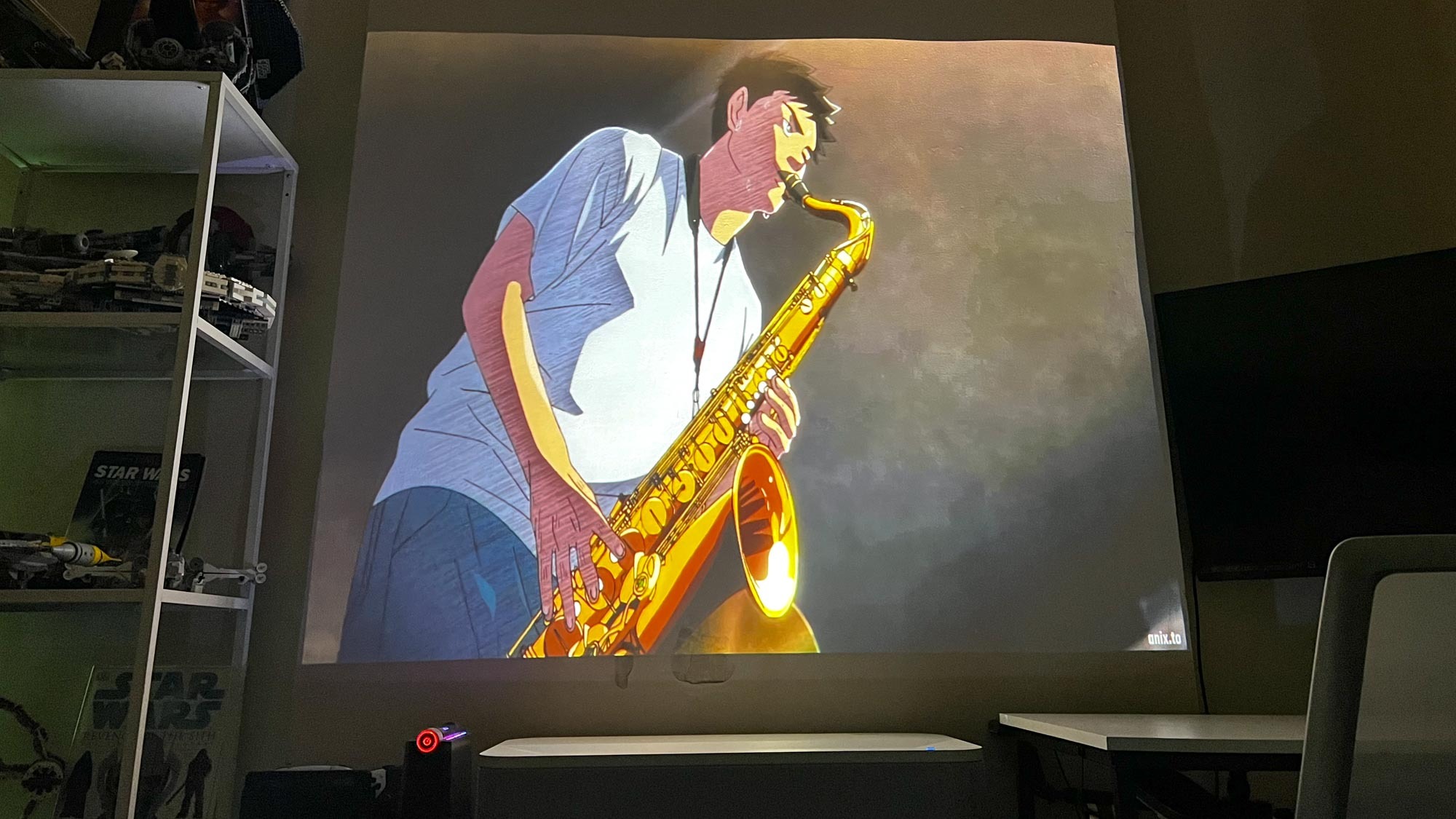
Good during the day, but even better at night
I couldn't resist playing some animated content in the evening to see its true color volume, and the jazz epic "Blue Giant" looked utterly wonderful, while the newest episode of "Frieren: Beyond Journey's End" looked better than ever.
Epson's LS800 projector works wonders in the evening, as well. Both Vivid and Cinema modes worked well enough for me, though most people will find that its pretty gorgeous right out of the box. As you might expect, I couldn't resist playing some animated content in the evening to see its true color volume, and the jazz epic "Blue Giant" looked utterly wonderful, while the newest episode of "Frieren: Beyond Journey's End" looked better than ever.
Given that the EpiqVision Ultra LS800 comes equipped with Android 11, most of the more popular content apps are available — except Netflix, mirroring the same issue as presented on the Formovie Theater (and several other projectors). There's workarounds, like using a PlayStation 5 to watch Netflix content, but it's a slight drag for those who may only use that specific streaming platform.
It's certainly better to use the projector in a darker environment, but it's nice to know that I could realistically keep the windows open and have a bit of sunlight streaming while using a projector.
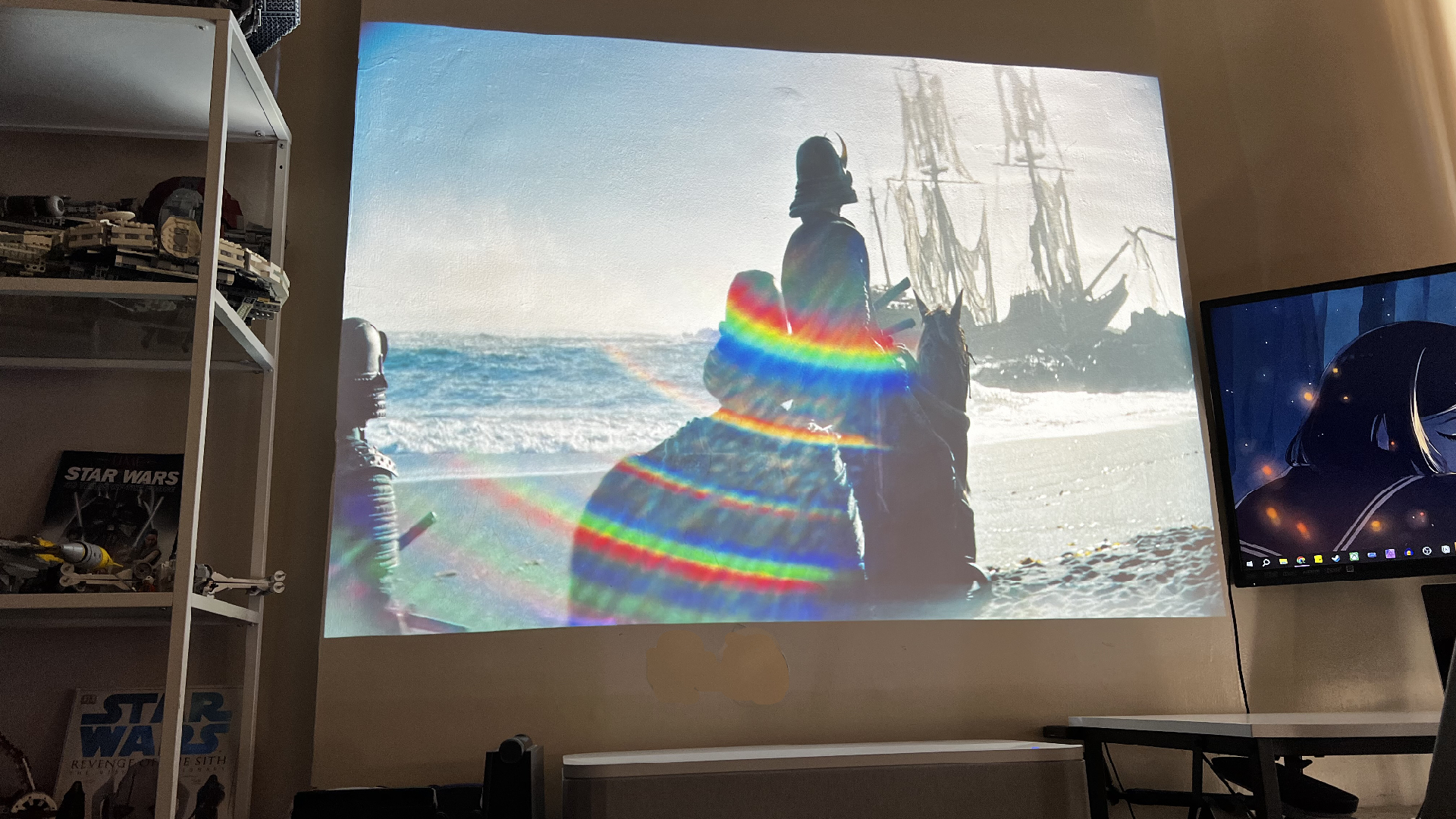
A projector made with gamers in mind
The EpiqVision Pro LS800 comes equipped with its own dedicated gaming HDMI port, which bypasses the Android OS and allows for incredibly smooth gaming at a purported 16.7ms input lag. Colors and contrast prove to remain consistent even when blazing at intense speeds in the newest installment of “Armored Core,” while the Lands Between of “Elden Ring” looked as magical as ever.
While the sweet spot might be under the 10ms mark for most gamers, especially those looking to get into the fast-paced gun shootouts of “Call of Duty,” the LS800’s 16.7ms is pretty optimal, especially on a projector. It can even dip down to 12ms when playing at 1080p — and while that still might not be ideal for some gamers, it’s a testament to the quality of engineering Epson put into this projector.
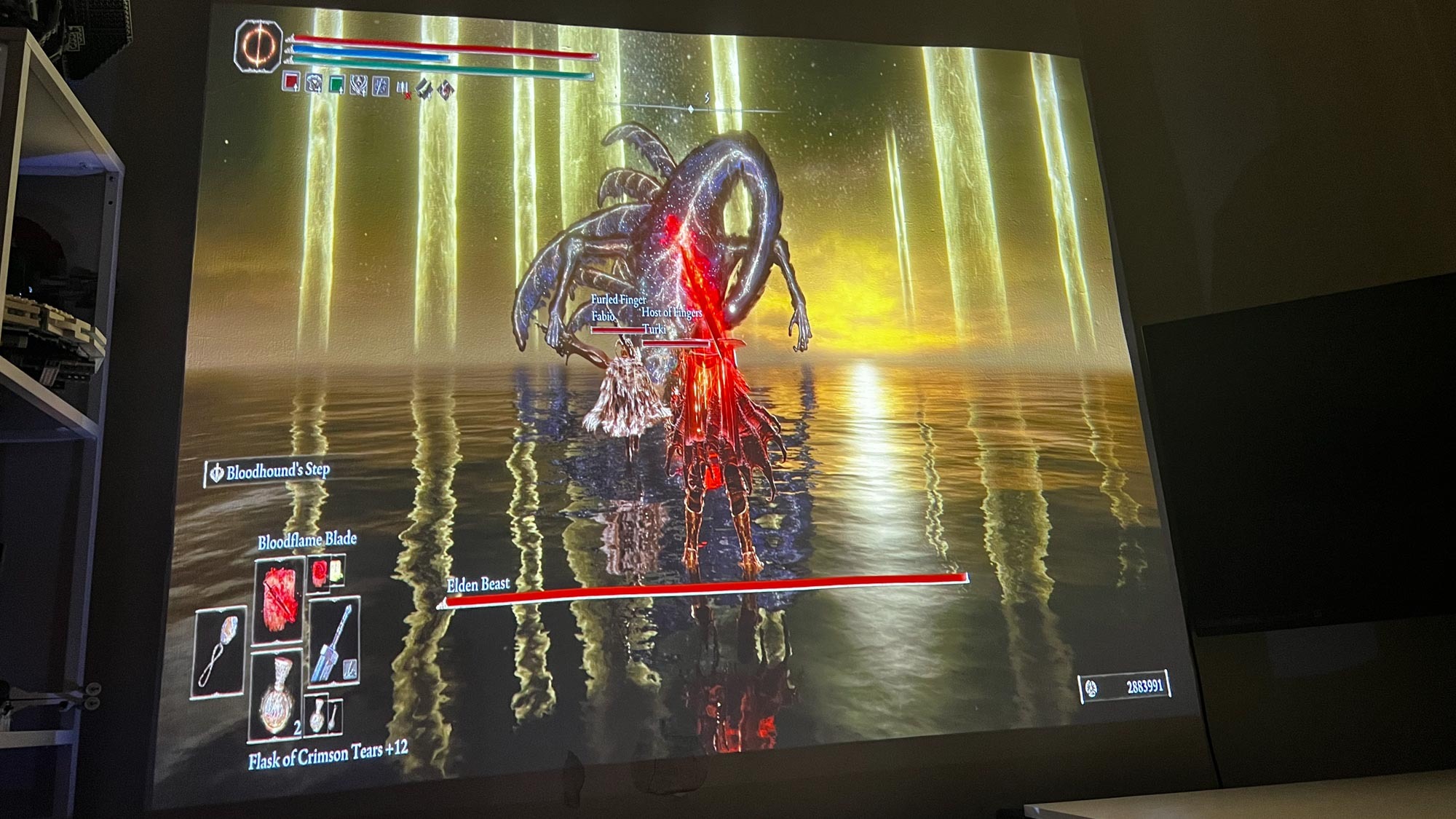
BenQ’s gaming-centered projector could prove to be a better option for gamers if the specs are to be believed. According to its own internal testing, the BenQ x3000i measures at 8ms of lag in 1080p gaming — though we won’t know until it’s in our hands, which will be quite soon so stay tuned to Tom’s Guide to see how the LS800’s fares against BenQ’s gaming projector.
If you really want the best gaming projector to play games at 4K/120Hz, consider the Pro Cinema LS12000. It's a gaming beast, but it comes in at around $5,000 and only has around 2,700 lumens against the LS800's 4,000.
There are better, more expensive out there, but as far as I'm concerned the LS800 is among the best and cheapest options for projector-loving video game enthusiasts.
Should you replace your TV with a projector?
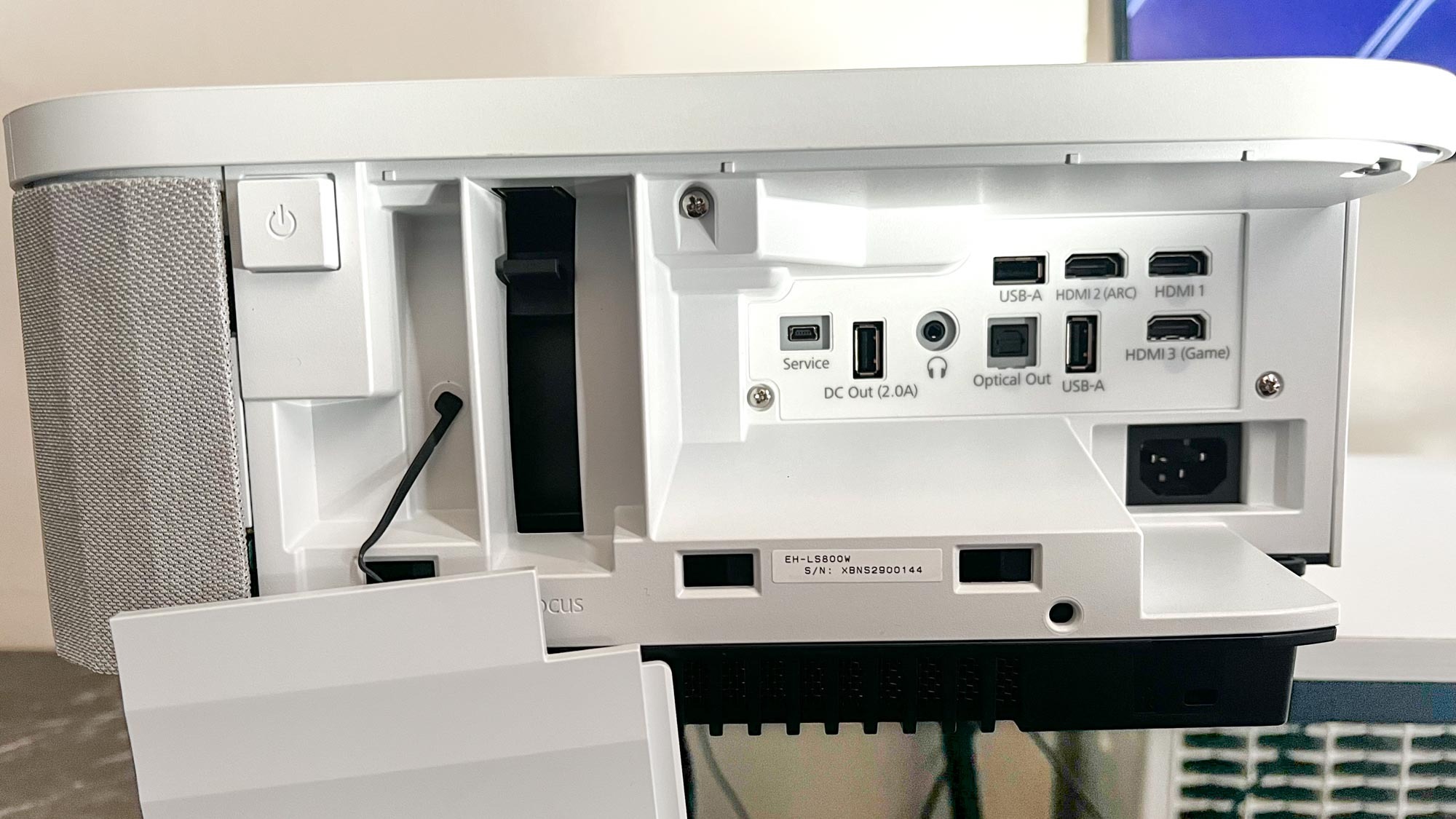
While it might be my personal favorite projector yet, the LS800 still has ample room for improvement and might not quite be an OLED killer. For starters, it uses Android 11 OS, meaning you’re missing out on Netflix compatibility. Plus you don’t get the same consistent updates and improvements that could be met if it was built on the Google TV platform, which makes initial setup an absolute breeze.
These aren’t major deal breakers for most projector enthusiasts, as you do still have access to a wide array of streamers, apps, and even free channels, but the absence of both Dolby Vision and Dolby Atmos are major bummers. On top of that, there’s no eARC for improved audio functionality via one of the best Dolby Atmos soundbars.
Obviously, its Yamaha-designed sound system should meet more than most users’ needs, and it does have HDR10 and HLG, so again Epson does a good job of keeping these issues at bay — but they do exist, and for those who like such features, ie Netflix or Dolby Atmos, then the EpiqVision Ultra LS800 might not be a UST projector for you.
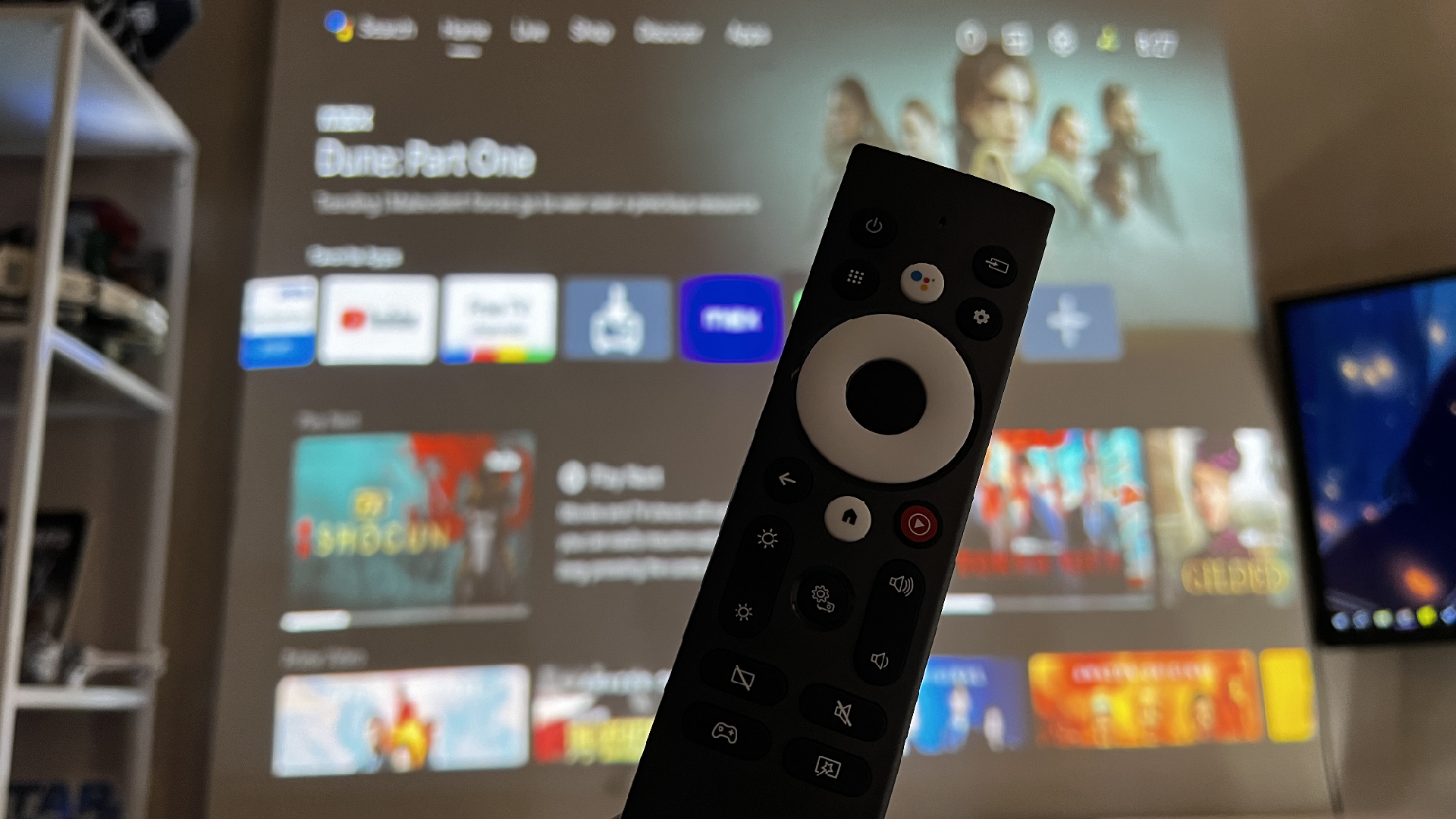
Beyond those complaints, the LS800’s fan is quite annoyingly loud when in operation. Although most content will be louder than it, the fan sound can be a bit distracting and only gets worse the higher you pump the brightness. It’s another one of those issues that can easily be overlooked, but is something to note and comes with the territory of using a projector over a TV.
Lastly, and though this might be more of a personal complaint, the LS800 keeps most of its HDMI and physical controls (like the focus toggle) in a small compartment in the back. While it might help in keeping wires at bay and flush, away from the wall, it's quite annoying to deal with, especially if you're changing inputs consistently — like switching out the PS5 HDMI with a PC.
It might be a bit of a nitpick, but overall I still find the LS800 to meet almost every need and goes well beyond the bare necessities. It's a hefty investment at $3,500, but offers loads of enjoyment as one of the sleekest home cinema upgrades, one that holds as much as a 20,000 hour lifespan.
If you're looking for a home cinema upgrade, a new projector, or something totally different over your Samsung S90C OLED, the Epson EpiqVision Ultra LS800 is certainly a strong contender for the crown, especially for those looking for daytime projector coverage without needing to close all the blinds in the house.
More from Tom's Guide
Sign up to get the BEST of Tom's Guide direct to your inbox.
Get instant access to breaking news, the hottest reviews, great deals and helpful tips.

Ryan Epps is a Staff Writer under the TV/AV section at Tom's Guide focusing on TVs and projectors. When not researching PHOLEDs and writing about the next major innovation in the projector space, he's consuming random anime from the 90's, playing Dark Souls 3 again, or reading yet another Haruki Murakami novel.
